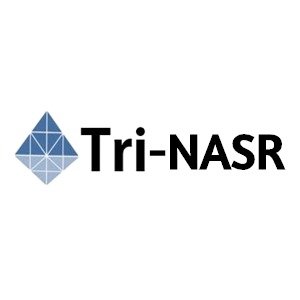Best Information Technology Lawyers in Ikeja
Share your needs with us, get contacted by law firms.
Free. Takes 2 min.
List of the best lawyers in Ikeja, Nigeria
About Information Technology Law in Ikeja, Nigeria
Information Technology (IT) law in Ikeja, Nigeria, is a burgeoning field that addresses issues related to technology, cybersecurity, data protection, intellectual property, and electronic commerce. Ikeja, being the capital of Lagos State, is a central hub for IT businesses and innovations. The technological industry is rapidly expanding, making it crucial for stakeholders to understand the legal landscape to protect their interests and capitalize on opportunities. Legal frameworks regulate how technology is used in various sectors, ensuring compliance with global standards and facilitating smooth business operations.
Why You May Need a Lawyer
There are several scenarios in which individuals or businesses may require legal assistance in the field of Information Technology:
- Data Protection and Privacy: With the increasing importance of data protection laws like Nigeria Data Protection Regulation (NDPR), understanding how to comply can be complex.
- Intellectual Property Rights: Protecting software code, algorithms, or trademarks from infringement is crucial for tech companies.
- Contractual Agreements: Drafting or reviewing agreements pertaining to IT services, cloud hosting, or software development to safeguard business interests.
- Cybersecurity Breaches: Handling legal implications from data breaches or cyber-attacks on your organization.
- E-commerce and Online Transactions: Navigating regulatory frameworks surrounding e-commerce businesses.
- Employment Law in IT: Addressing contractual obligations and disputes between tech employers and employees.
Local Laws Overview
In Ikeja, several key legal instruments are pertinent to Information Technology:
- Nigeria Data Protection Regulation (NDPR): Governs the handling of personal data to protect the privacy rights of individuals.
- Cybercrimes Act 2015: Establishes laws on cybercrimes and cybersecurity to protect data integrity and curb cybercrimes.
- COPYRIGHT ACT: Guides the protection of software and other intellectual property assets.
- Electronic Transactions Bill: A legislative tool to support e-commerce activities in Nigeria.
Frequently Asked Questions
What are my rights under the Nigeria Data Protection Regulation (NDPR)?
The NDPR protects your right to privacy regarding personal data. It requires organizations to keep your data secure, transparent in their data use, and allows you to request access to or deletion of your data.
How can I protect my software code in Nigeria?
You can protect your software through copyright registration and, where applicable, by obtaining patents for any unique inventions or algorithms embodied in the software.
Can a tech startup operate remotely with international clients in Nigeria?
Yes, but compliance with local laws and international regulations regarding data protection, tax obligations, and cross-border transactions is essential.
What should I include in an IT service agreement?
Typically, this includes a detailed description of services, payment terms, confidentiality clauses, intellectual property rights, and dispute resolution mechanisms.
What is the procedure in responding to a data breach?
Notify affected parties and relevant authorities promptly, investigate the breach, implement measures to prevent recurrence, and consult legal experts to ensure regulatory compliance.
Are there any legal considerations when using cloud services in Nigeria?
Yes, considerations include data transfer regulations, contractual obligations regarding data security, and compliance with both local and international data protection laws.
What are the consequences of cybercrime under Nigerian law?
The Cybercrimes Act imposes heavy penalties, including fines and imprisonment, for offenses like hacking, identity theft, and unauthorized data modification.
How can I enforce my intellectual property rights in IT in Nigeria?
Enforcement can be achieved through legal actions such as seeking injunctions, claims for damages, and engaging law enforcement agencies.
Is digital signature legal in Nigeria?
Yes, digital signatures are legally recognized under the Nigerian Electronic Transactions Bill, though specific requirements must be met to ensure their validity.
How can I ensure compliance with local IT laws?
Engage a legal professional with expertise in IT law to audit your operations, provide guidance on compliance policies, and keep you updated on legal changes.
Additional Resources
Several resources and organizations might be helpful:
- National Information Technology Development Agency (NITDA): A key regulatory body responsible for developing and implementing IT policies.
- Nigerian Communications Commission (NCC): Regulates the telecommunications industry and digital services in Nigeria.
- Computer Professionals Registration Council of Nigeria (CPN): Offers professional insights and regulation of Information Technology practice in Nigeria.
Next Steps
If you require legal assistance in Information Technology, consider the following steps:
- Identify the specific area of IT law relevant to your situation.
- Research and contact legal professionals or firms specializing in IT law in Ikeja.
- Prepare any necessary documents or data relevant to your legal needs.
- Schedule a consultation to understand your legal position and the way forward.
Engaging with a proficient legal advisor will not only provide clarity but also potentially protect your interests in a rapidly evolving industry.
Lawzana helps you find the best lawyers and law firms in Ikeja through a curated and pre-screened list of qualified legal professionals. Our platform offers rankings and detailed profiles of attorneys and law firms, allowing you to compare based on practice areas, including Information Technology, experience, and client feedback.
Each profile includes a description of the firm's areas of practice, client reviews, team members and partners, year of establishment, spoken languages, office locations, contact information, social media presence, and any published articles or resources. Most firms on our platform speak English and are experienced in both local and international legal matters.
Get a quote from top-rated law firms in Ikeja, Nigeria — quickly, securely, and without unnecessary hassle.
Disclaimer:
The information provided on this page is for general informational purposes only and does not constitute legal advice. While we strive to ensure the accuracy and relevance of the content, legal information may change over time, and interpretations of the law can vary. You should always consult with a qualified legal professional for advice specific to your situation.
We disclaim all liability for actions taken or not taken based on the content of this page. If you believe any information is incorrect or outdated, please contact us, and we will review and update it where appropriate.









